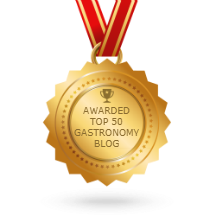Casa de Cervantes, Valladolid
Dostoevsky in The Diary of a Writer on Don Quixote*
"There is nothing in life more powerful than this piece of fiction. It is still the final and the greatest expression of human thought, the most bitter irony that a human is capable of expressing; and if the world came to an end and people were asked somewhere there: ‘Well, did you understand anything about your life on earth and draw any conclusion from it?’ a person could silently hand over Don Quixote. ‘Here is my conclusion about life. Can you condemn me for it?’"
Highly Recommended: Edith Grossman's translation of Don Quixote:
“The extraordinary significance and influence of this novel were reaffirmed, once again, in 2002, when one hundred major writers from fifty-four countries voted Don Quixote the best work of fiction in the world.” Translator’s Note to the Reader, Don Quixote: A New Translation by Edith Grossman (Ecco, Harper Collin, New York, 2003.)
"Miguel de Cervantes was born on September 29, 1547, in Alcala de Henares, Spain. At twenty-three he enlisted in the Spanish militia and in 1571 fought against the Turks in the battle of Lepanto, where a gunshot wound permanently crippled his left hand. He spent four more years at sea and then another five as a slave after being captured by Barbary pirates. Ransomed by his family, he returned to Madrid but his disability hampered him; it was in debtor's prison that he began to write Don Quixote. Cervantes wrote many other works, including poems and plays, but he remains best known as the author of Don Quixote. He died on April 23, 1616." -- Harper Collins website.
Valladolid -- See Valladolid: Castilla y León's Capital & Historical Treasure Trove -- was the capital of Spain for five years (1601-1606) under Phillip III after the city bribed the Duque de Lerma, the royal favorite and one of the most corrupt individuals ever to hold power in Spain, 400,000 ducats to move the court from Madrid.

Miguel de Cervantes Saavedra, spent three years in Valladolid during this period in a house on the calle del Rastro. The Casa de Cervantes is located at calle del Rastro 7, two and a half blocks east of Plaza de Zorilla (just south of the Plaza, don’t miss the Campo Grande park where magnificent semi-tame peacock–with the emphasis on “semi”– fan their feathers and strut about the park doing their mating dance for the peahens and tourists alike).
Cervantes, along with more than 20 of his relatives, friends, and perhaps a down-at-heel servant or two, crowded into 13 rooms above an old tavern that was the hangout for butchers from the nearby slaughterhouse.
My old friend and some-time mentor, the late William Byron, author of the definitive biography of Cervantes (Cervantes: A Biography), describes what the building was like in those days, "one of five new houses jerry built by a small-bore speculator hoping to cash in on an influx of riffraff into the city. It was an instant slum."
Cervantes was arrested in this house, though, after the mysterious death from sword wounds of a nobleman killed in the dangerous streets of this quarter. Cervantes and his family helped the man into their apartments, where he died two days later, and when no one could put a finger on the man's assailant, Cervantes and several members of his family were arrested, albeit briefly, thus adding Valladolid to list of jails–Algiers, Castro del Rio, Argamasilla de Alba and Sevilla–that the great writer graced with his presence–most unjustly in all the instances.
Don't expect to moved by the spirit of the great writer in today's contrived surroundings, however; the house is more interesting as a refurbished 17th-century dwelling, certainly in better shape now than it was in those days, than as a Cervantes museum. Besides, by the time Cervantes moved here, Volume I of Don Quixote was already finished and in the hands of his publisher, Francisco de Robles, who had moved to Valladolid from Madrid to be close to the real money - - in this epoch certainly - - around the supremely corrupt duke of Lerma and the court of Phillip III.
More on Cervantes:
Experience Spain With Gerry Dawes: Customized Culinary, Wine & Cultural Trips to Spain & Travel Consulting on Spain
Gerry Dawes can be reached at gerrydawes@aol.com; Alternate e-mail (use only if your e-mail to AOL is rejected): gerrydawes@gmail.com
Gerry Dawes can be reached at gerrydawes@aol.com; Alternate e-mail (use only if your e-mail to AOL is rejected): gerrydawes@gmail.com















This is one of the Blog from Spain with all the interested information needed to have, so my favorite, I am going to link from my blog and site as well.
ReplyDelete